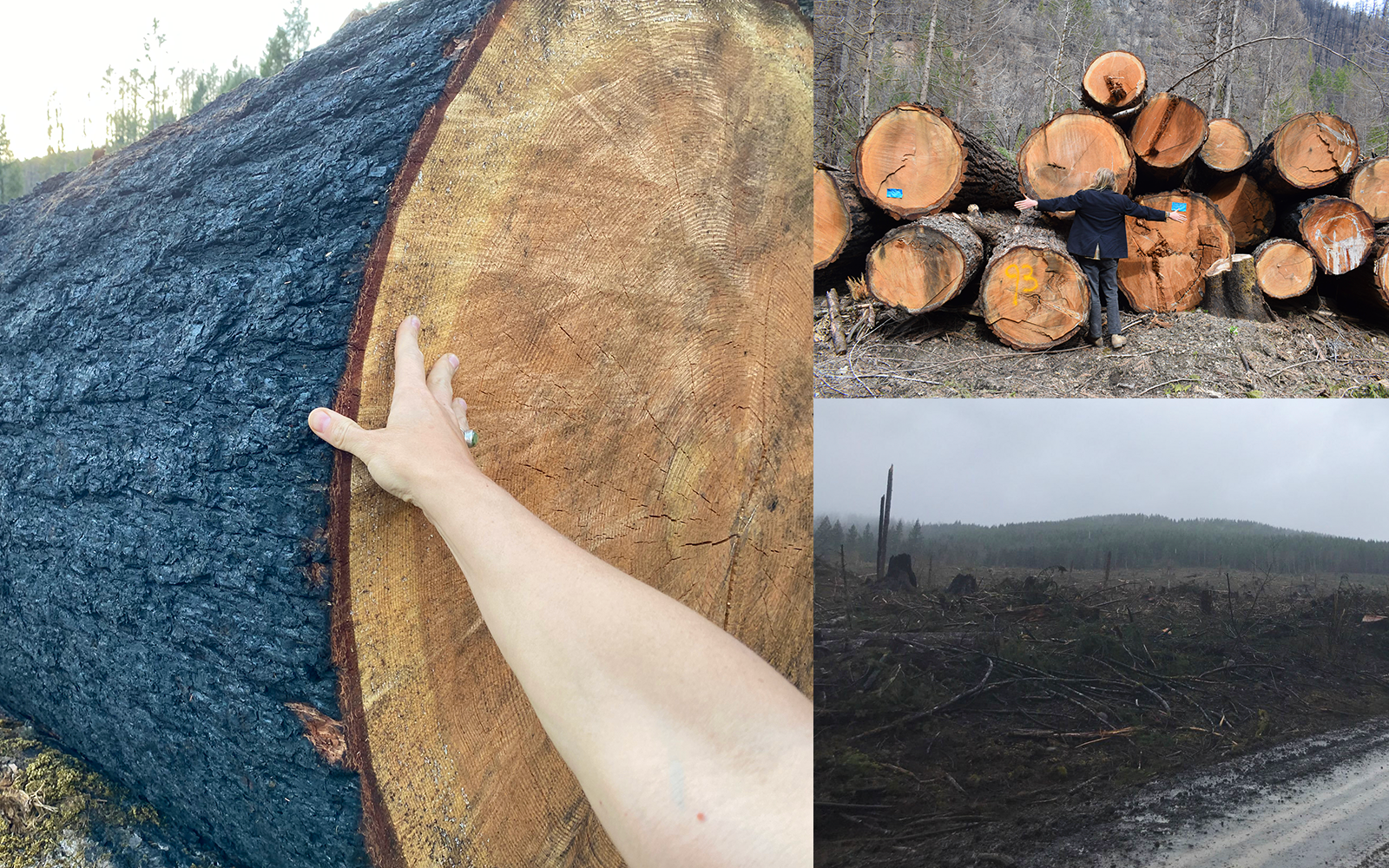FOR IMMEDIATE RELEASE
July 6, 2021
Contacts:
Nick Cady, Cascadia Wildlands, nick@caswild.org, (314) 482.3746
Meriel Darzen, Crag Law Center, meriel@crag.org, (503) 525.2725
Conservationist Appeal ODOT’s Bill for Release of Public Records
Agency Billed Cascadia Wildlands $87,000 for Hazard Tree Removal Records
Portland, OR — Cascadia Wildlands appealed the $87,756.60 estimated bill issued by the Oregon Department of Transportation (ODOT) in response to the organization’s public records request seeking documents related to the agency’s hazard tree removal activities following the 2020 Labor Day fires.
ODOT is in the process of using hundreds of millions of federal and state dollars to remove hundreds of thousands of trees along public roads and public and private properties that burned the 2020 wildfires. Despite the considerable amount of taxpayer dollars at issue, and the impacts of these actions on Oregonians and Oregon’s public forests, ODOT largely failed to be transparent regarding its allocation of funds and its contracting process. This spring, individuals including several contractors and landowners with first hand knowledge came forward with allegations of mismanagement of the funds and excessive tree cutting. Considerable media coverage led to several state legislative hearings during which whistleblowers testified on the record to misdeeds including over marking of trees, unqualified individuals conducting tree marking, excessive cutting, and drug use on the job.
On April 1, 2021, Cascadia Wildlands submitted a public records request to ODOT. Under Oregon’s Public Records Law, “every person” has a right to inspect any nonexempt public record of a public body in Oregon. Cascadia requested records pertaining to hazard tree removal following the fall 2020 wildfires, including guidelines to be followed, the criteria for hazard tree removal and assessment, and information about the contracts and contractors. As is standard under Oregon law, Cascadia Wildlands — an Oregon-based non-profit organization with an over 20 year history of forest advocacy — requested a fee waiver. Public bodies, including ODOT, are statutorily required to consider and grant reasonable requests to waive or reduce fees associated with fulfilling a public record request if doing so is in the public’s interest “because making the records available primarily benefits the general public.” ODOT sent Cascadia an estimated bill of over $87,000 to provide the records and denied the fee waiver request. Today, Cascadia Wildlands appeals that denial to the Oregon Attorney General.
“Public records are just that: public and ODOT’s staff and activities are paid with public dollars,” said Nick Cady, legal director for Cascadia Wildlands. “ODOT’s refusal to reduce or waive fees and it’s outrageously high estimate demonstrate the agency is more interested in hiding its misdeeds than being transparent with the public the agency serves.”
Cascadia Wildlands is represented by the Crag Law Center in the appeal.
###
Background
The 2020 wildfire season was one of the state’s most destructive on record. The largest block of fire, referred to as the Oregon Labor Day Wildfires, consisted of five fires on the western side of the Cascades that spread dramatically due to a historic windstorm. These fires took the lives of nine Oregonians, displaced thousands of individuals, burned more than 1.2 million acres of land, and destroyed more than 5,000 residential and commercial structures. In the wake of the 2020 wildfire season, Oregon began rehabilitation efforts, including cleaning up debris and hazardous materials.
To reach Oregon’s wildfire recovery goals, the state has assigned the Oregon Department of Transportation to lead the Oregon Debris Management Task Force. The task force also consists of the Office of Emergency Management (OEM) and the Department of Environmental Quality (DEQ). Oregon’s wildfire debris clean-up process consists of two steps focusing on the safe clean-up and disposal of potentially harmful materials. In December 2020, ODOT completed step one, which addressed the clean-up of household hazardous waste removal. Step two, which consists of removing hazard trees, ash, and debris by state-hired contractors, began in December 2020 and is predicted to take six to eighteen months to complete. Hazard tree removal clears trees that can fall onto roadways, properties, and recreation areas where people frequent. Similarly, ash and debris removal consist of toxic ash and structural debris which must be removed to ensure safety before rebuilding can begin.
Currently, the total cost estimate of the debris clean-up is $622 million. The assessment includes $326 million for ash and debris removal and $295.7 million for hazard tree removal. Oregon and the Federal Emergency Management Agency (FEMA) will share the cost to fund the clean-up efforts. While Oregon funds will initially pay for clean-up, at least 75% of the hazard tree removal and structural debris removal is eligible for reimbursement by FEMA as long as the Oregon Debris Management Task Force complies with FEMA’s requirements of controlling costs, reducing waste, and eliminating fraud.
As the Oregon Debris Management Task Force and specifically ODOT and its contractors began implementing their plans to cut nearly 300,000 trees deemed as hazardous, members of the public grew concerned about the number of trees being cut along scenic highways, protected rivers, and secondary roads within the burn boundaries of 2020’s wildfires. Following Oregon Public Broadcasting’s exposé of ODOT’s mismanagement of post-fire roadside hazard tree removal and accusations by whistleblowers and industry leaders, Oregon Senator Jeff Golden, chair of the Senate Wildfire Recovery Committee, held several hearings requesting information from ODOT regarding the tree removal effort. It was during this time that Cascadia submitted its public records request. Since the hearings, public officials, environmental groups, and communities affected by the post-fire logging have called upon Governor Kate Brown to immediately pause the cutting and halt the excessive roadside logging occurring under the guise of hazard tree removal.

